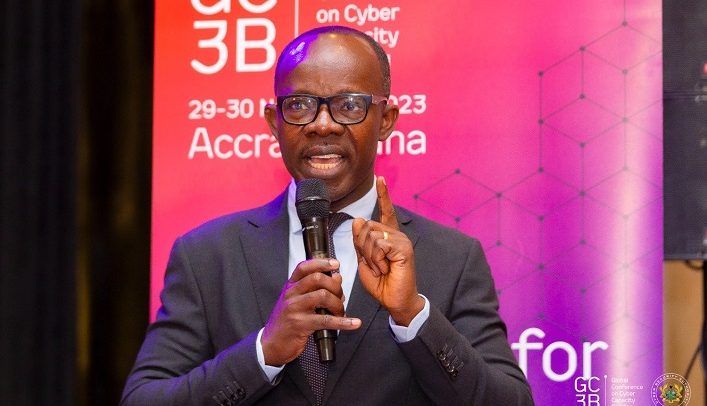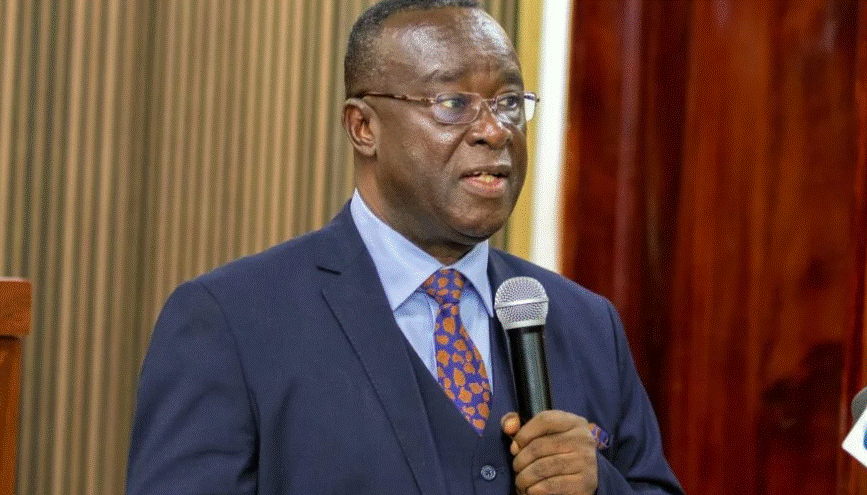

 In the modern hyper-connected world, data has become both the fuel of innovation and the target of attacks.
In the modern hyper-connected world, data has become both the fuel of innovation and the target of attacks.
As enterprises embrace digital transformation, the complexity and vulnerability of their networks grow exponentially.
Traditional security tools are no longer enough to combat modern threats such as ransomware, zero-day exploits, insider breaches, and supply chain attacks.
Enter Artificial Intelligence (AI), a transformative force that is revolutionizing how we detect, respond to, and investigate cyber threats.
One of the leading IT professionals advocating in this transformation is Mr. Antwi Isaac Kwame, a respected Ghanaian network Engineer and cybersecurity researcher.
In his widely circulated article, “AI Applications in Enterprise Network Security: Turning Data into Defense,” Mr. Antwi argues that AI is not simply a supplementary technology, but a strategic asset in the fight against digital threats.
According to him, “AI systems are enabling a new era of intelligent, responsive, and scalable security infrastructure” capable of adapting to ever-evolving attack patterns.
Modern cyber threats
Modern enterprise networks span across on-premises infrastructure, cloud platforms, remote devices, and IoT ecosystems.
As these networks become more interconnected, the attack surface increases, making it harder for traditional perimeter defenses to keep up.
According to a 2023 IBM Security report, the average data breach cost reached $4.45 million, the highest in history, while 83 per cent of organizations experienced more than one breach.
Cybersecurity professionals now face a daunting challenge: how to protect vast, distributed ecosystems in real time without overwhelming human analysts. This is where AI’s scalability and speed come into play.
AI as the security backbone
Mr. Antwi emphasised the role of machine learning (ML) and AI in building adaptive security architecture, highlighting that one of AI’s key applications is anomaly detection, a process where AI learns normal behaviours of users, devices, and systems, and flags suspicious deviations.
For example, if an employee typically logs in between 0800 hourshours1700 hours , an attempt to access the network at 1500 hours from a foreign IP might be flagged for investigation.
Similarly, if a device begins communicating with an unfamiliar server, AI systems can trigger automatic containment protocols.
AI is also central to Security Orchestration, Automation, and Response (SOAR) platforms.
These systems automate complex workflows such as isolating compromised endpoints, notifying analysts, and launching forensic snapshots, all in seconds.
As Mr. Antwi puts it, “AI’s ability to learn and adapt makes it uniquely effective in modern security environment, it improves with each threat it detects.”
From reactive to predictive security
AI doesn’t just react, it anticipates. Tools like Darktrace, CrowdStrike Falcon, and Microsoft Defender use AI to predict threats by analyzing patterns across billions of events.
These systems monitor user behavior, network flows, application access, and external threat intelligence to detect threats long before they manifest.
Mr. Antwi explained how AI empowers organizations to shift “from reactive defense to predictive vigilance.” He notes that this capability is particularly vital in sectors such as finance and healthcare, where milliseconds can mean millions lost or lives endangered.
AI in digital forensics
Beyond threat detection, AI is accelerating digital forensics, the post-incident investigation process that reconstructs how an attack occurred. AI tools such as ReaQta, Maltego, and Palantir Foundry assist forensic investigators by analyzing logs, metadata, and endpoint activities at a scale and speed unattainable by humans.
Mr. Antwi highlights that these tools can uncover attacker tactics, techniques, and procedures (TTPs) by correlating data from emails, logs, registry entries, and file hashes.
In a 2022 ransomware attack simulation conducted by his team, AI reduced investigation time from 26 hours to just 4 hours, an 85 per cent reduction in response window.
Global experts advancing AI in cybersecurity
As Mr. Antwi’s numerous publications lead these discussions in West Africa, global pioneers are also contributing to the body of knowledge and innovation in this space.
In the United States, Dr. Dawn Song, professor of Computer Science at UC Berkeley, is a globally cited authority in AI-powered security.
Her work on adversarial machine learning and privacy-preserving AI has redefined how to secure learning systems against manipulation.
In Israel, Gil Shwed, founder of Check Point Software Technologies, has pioneered AI-based threat prevention platforms that defend millions of networks globally.
His company’s real-time malware classification engine processes over 100 billion events daily.
From the United Kingdom, Professor Emil Lupu of Imperial College London leads research on AI for network security and trust management in autonomous systems. His models are currently used to defend critical infrastructure in Europe.
And in India, Dr. Sandip Chakraborty, associate professor at IIT Kharagpur, is developing AI-enhanced deception detection and incident correlation tools that help national defense agencies monitor large-scale infrastructure.
Together with Mr. Antwi’s thought leadership, these voices represent a global movement committed to intelligent, accountable, and proactive cybersecurity frameworks.
Challenges and ethical considerations
Despite its promise, AI in cybersecurity is not without challenges. Mr. Antwi in his recent peer review paper publication, indicated that data bias, false positives, and lack of explainability can limit effectiveness.
He stresses that security professionals must maintain a human-in-the-loop model, where analysts review AI decisions for fairness and context. “Trust is built when AI can provide transparent justifications,” he writes, echoing a growing demand for explainable AI in regulated industries like banking and healthcare.
Furthermore, over-reliance on AI could lead to automation fatigue or security complacency, where organizations fail to invest in human talent or strategic risk governance.
Mr. Antwi advocates “a balanced approach, where AI enhances, not replaces, human decision-making.”
Global AI implications
AI is already transforming how organizations around the world defend themselves against sophisticated cyber threats. At Bank of America, AI algorithms are deployed to scan billions of transactions daily, successfully blocking fraudulent activities with an impressive accuracy rate exceeding 92 per cent.
In Singapore, the Cyber Security Agency utilized AI in 2022 to proactively scan over 4,000 public websites, identifying and remediating more than 3,000 vulnerabilities in just a few hours, a task that would have taken months using manual methods. Closer to home, in Ghana, Mr. Antwi Isaac Kwame and his team partnered a local telecom provider to implement an AI-powered DDoS mitigation system, which resulted in a 40% reduction in network downtime and savings of over GH¢3.2 million in potential financial losses.
These examples illustrate AI’s real-time capability to identify, respond to, and neutralize threats across diverse environments with unprecedented speed and accuracy.
A call to action
Looking ahead, Mr. Antwi has recommended that countries like Ghana develop a National AI Cybersecurity Strategy, one that aligns with global best practices while remaining sensitive to local needs.
This includes developing indigenous datasets, investing in cybersecurity education, and mandating AI security audits for critical sectors.
He called for public-private partnerships to fund AI research labs, similar to those seen in Israel and Singapore, and urged policymakers to integrate AI literacy into national ICT curricula.
In his words, “AI is not just defending our networks, it’s defending our future. Every second we delay, we leave data, systems, and lives exposed.”
Building cyber resilience
AI is changing the cybersecurity paradigm, from detection to prevention, from investigation to prediction.
Experts like Mr. Antwi are among the few professionals who are leading the charge, and a growing ecosystem of global researchers to push the boundaries that the future of cyber defense is smarter, faster, and more adaptive than ever before.
In an age where attackers operate at machine speed, defenders must do the same. With AI, we are no longer just watching the network, we’re understanding it, protecting it, and evolving with it.
Now is the time for organizations, governments, and individuals to ask: How are we using AI to turn our data into defense?
By Kelvin N. Otoo
Source: GNA
The post Reshaping cybersecurity and digital forensics in Ghana appeared first on Ghana Business News.
Read Full Story
























Facebook
Twitter
Pinterest
Instagram
Google+
YouTube
LinkedIn
RSS